Before the Mountain Was Moved is a american film of genre Documentary released in USA on 1 march 1970
Before the Mountain Was Moved (1970)
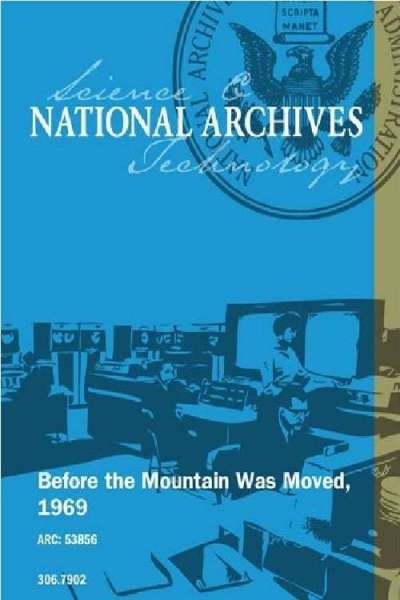
If you like this film, let us know!
- Infos
- Casting
- Technical infos
- Photos
- Videos
- Film quotes
- Characters
- Music
- Awards
Released in USA 1 march 1970
OriginUSA
Genres Documentary
Themes Environmental films, Documentary films about business, Documentary films about environmental issues, Documentary films about technology
Rating69%










Before the Mountain Was Moved is a 1970 American documentary film produced by Robert K. Sharpe. The film portrays the struggle by the inhabitants of Raleigh County, West Virginia, to preserve their land from the ravages of strip mining, and their efforts to pass state legislation to this end. It was nominated for an Academy Award for Best Documentary Feature.
Comments
Leave comment :
Suggestions of similar film to Before the Mountain Was Moved
There are 8862 with the same cinematographic genres, 1580 films with the same themes (including 12 films with the same 4 themes than Before the Mountain Was Moved), to have finally 70 suggestions of similar films.If you liked Before the Mountain Was Moved, you will probably like those similar films :
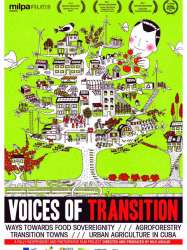
Voices of Transition (2012)
, 1h5Origin France
Genres Documentary
Themes Environmental films, La mondialisation, Films about the labor movement, Documentary films about business, Documentary films about environmental issues, Documentary films about technology, Documentaire sur le monde du travail, Disaster films
Rating75%





Using interviews and overlays of graphics and text, the film presents the current problems facing industrial agriculture. It explores why in the interviewees' view the current industrial model is not up to the task of feeding the world's people. According to the film every calorie of energy contained in a food source currently takes between 10 and 20 calories of crude oil in the production of fertilizers and transportation to produce, leading to a strong dependence of the cost of food on oil prices. As a result of peak oil and increasing oil prices this dependence will lead to ever increasing food prices. According to the film, this dependence already represents a significant weak-spot in the global food supply chain. Additionally, agriculture is already responsible for 40% of greenhouse gas emissions, contributing to climate change. Furthermore, the film argues that the overuse of inorganic fertilizers has been responsible for the loss of soil fertility and threatens the complete loss of usable soil within the next decades through soil erosion and sinking crop yields. These effects, according to the film, can only be partly mitigated by the increased use of those same fertilizers. The loss of workplaces, the concentration of land in the hands of a few (allegedly a farm closes every 23 minutes in France) as well as the dependence on large corporations are enumerated as side effects of the industrialisation of agriculture since the 1920s. Companies, such as Monsanto and Bayer, control everything from seed stock to fertilizers and the necessary chemical mixes for hybrid plants, thereby controlling the entire supply chain. The film argues that this development was supported through subsidies from the World Bank. Interviews with Vandana Shiva, the founder of the Transition Towns movement Rob Hopkins and various agricultural experts serve to argue this viewpoint. The dependence on crude oil is illustrated through the example of the wholesale food market in Rungis.
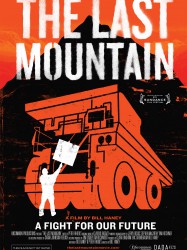
The Last Mountain (2011)
, 1h35Origin USA
Genres Documentary
Themes Environmental films, Documentary films about business, Documentary films about environmental issues, Documentary films about historical events, Documentary films about politics, Documentary films about technology, Political films
Rating76%






Mountaintop Removal (2007)
Genres Documentary
Themes Environmental films, Documentary films about business, Documentary films about environmental issues, Documentary films about technology
Rating80%





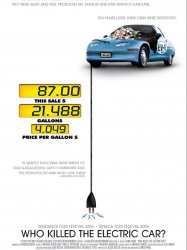
Who Killed the Electric Car? (2006)
, 1h32Origin USA
Genres Documentary
Themes Environmental films, Transport films, Films about automobiles, Documentary films about business, Documentary films about environmental issues, Documentary films about technology, Road movies
Actors Tom Hanks, Martin Sheen, Mel Gibson, Ed Begley Jr., Phyllis Diller
Rating75%





Au début des années 2000, plusieurs modèles de voitures électriques étaient en circulation en Californie, dont l'EV1, produite par General Motors et mise en location à long terme, puis retirée du marché en 2006. Ce documentaire retrace la mort prématurée de ce véhicule et enquête sur l'importance des lobbies du pétrole dans l'état de Californie.
 , 40minutes
, 40minutesOrigin USA
Genres Documentary
Themes Environmental films, Documentary films about business, Documentary films about environmental issues, Documentary films about historical events, Documentary films about technology, Disaster films
Rating57%





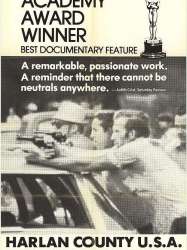
Harlan County U.S.A. (1977)
, 1h43Directed by Barbara Kopple
Origin USA
Genres Documentary
Themes Environmental films, Films about anarchism, Politique, Films about the labor movement, Documentary films about business, Documentary films about environmental issues, Documentary films about politics, Documentary films about technology, Documentary films about anarchism, Political films
Rating81%





Kopple initially intended to make a film about Kenzie, Miners for Democracy and the attempt to unseat Tony Boyle. When miners at the Brookside Mine in Harlan County, Kentucky went on strike in June 1972, Kopple went there to film the strike against Duke Power Company which the UMWA had helped to organize. The strike proved a more interesting subject, so Kopple switched the focus of her film.
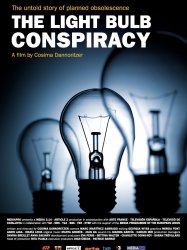
The Light Bulb Conspiracy (2010)
, 1h15Genres Documentary
Themes Environmental films, La mondialisation, Films about the labor movement, Documentary films about business, Documentaire sur l'altermondialisme, Documentary films about environmental issues, Documentary films about historical events, Documentary films about technology, Documentaire sur le monde du travail
Actors Casey Neistat
Rating79%





Un historique de cette stratégie commerciale et industrielle visant à limiter la durée de vie de certains produits ou appareils est relaté à travers plusieurs exemples particulièrement significatifs.

Sludge (2005)
Origin USA
Genres Documentary
Themes Environmental films, Documentary films about business, Documentary films about environmental issues, Documentary films about historical events, Documentary films about technology, Disaster films
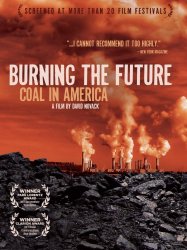 , 1h29
, 1h29Origin USA
Genres Documentary
Themes Environmental films, Documentary films about business, Documentary films about environmental issues, Documentary films about technology
Rating73%






The Return of Navajo Boy (2000)
, 52minutesOrigin USA
Genres Documentary
Themes Environmental films, Documentary films about business, Documentary films about law, Documentary films about environmental issues, Documentary films about nuclear technology, Documentaire sur une personnalité, Documentary films about technology
Rating26%





 Connection
Connection